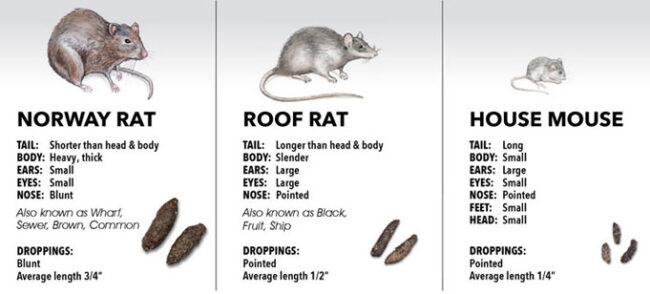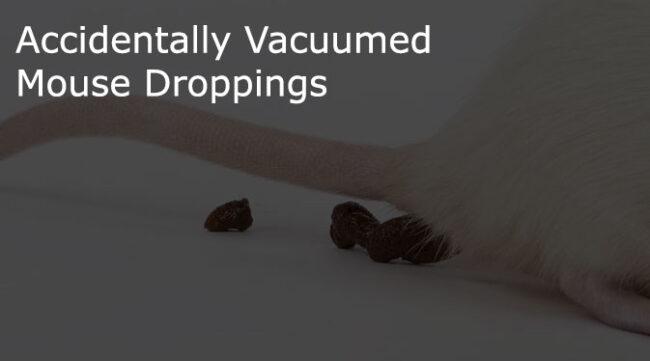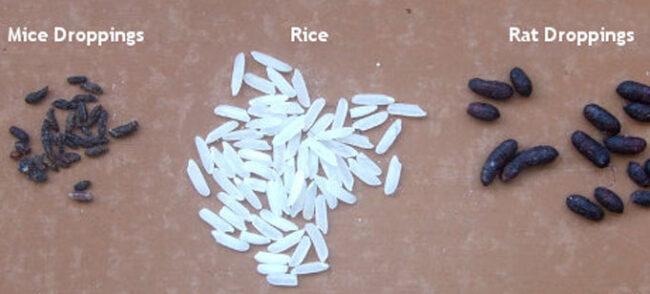Mouse droppings are dangerous and infectious to the human body. The removal or cleaning process of rat droppings differs from other home-produced wastes.
That is why particular cleaning processes must be followed while treating mouse droppings.
Once you accidentally vacuum the mouse droppings, the first thing you bear in mind is that you must not panic. Contact an expert medical practitioner.
Then it would help if you prepared to clean the vacuum. Dismantle all the parts of the cleaner, wash and clean them properly with gloves and mask on, dry them in sunlight and then reassemble again.
It is evident that you may find yourself dealing with mouse feces incorrectly if unaware of their possible danger. Vacuuming the rat droppings is also an inappropriate cleaning process.
If you do so, don’t panic. Continue reading further.
Before you jump into the solution process for accidentally vacuuming the mouse droppings, you must know about the dangers of rat poop.
This knowledge will facilitate your adoption of the measure after accidentally vacuuming the mouse droppings.

Dangers of Mouse Droppings
When we say mouse droppings, it includes feces, urine, nesting materials, and vomitus. The most common droppings are feces. Mouse feces looks dark brown or black granular small pellet shaped.
If any place has an excessive amount of mouse feces, it means that area is highly unhygienic. Moreover, it also indicates an infestation of the mouse in that place.
Rat droppings mostly carry two types of viruses- arenavirus and hantavirus. Hantavirus is the most common virus found in mouse feces.
Due to the effect of these viruses, people often get sick and becomes a victim of diseases. Two frequently reported diseases are- salmonellosis and leptospirosis.
When droppings dry up, any dropping movement emits the viruses into the air. At this time, the surrounding air becomes toxic.
Even touching or dropping with bare hands may also become the reason for many skin diseases.
Inhalation of the toxic air or contact with the air can cause severe harmful diseases and lungs related syndromes. Hantavirus Pulmonary Syndrome is one of them.
Even respiratory failure can also happen in extremely severe cases.
Measures You Must Adopt When You Accidentally vacuumed the Mouse Droppings

Here I will mention a few steps you must follow once you have vacuumed the mouse droppings by accident.
Being maximum careful while following these steps is a non-negotiable option here.
1. Do NOT Panic
Once anyone accidentally vacuums the mouse droppings and immediately realizes your mistake, it is pretty apparent that you may start panicking.
But in this stage, the first thing you must keep following is not to panic.
If you start panicking, blood pressure and circulation rise, and the lungs start sucking more air than average. At this moment, the dust produced from the vacuuming inhaled by you gets mixed with your blood and lungs.
Your panic attack facilitates the mixing process and can make it more severe within less than an average time.
2. Communicate with Medical Expert
Now, it becomes your undeniable duty to contact health professionals or medical experts regarding your issue. You must disclose all the information the medical expert has asked for.
You have to follow all advice he gives if you don’t want to see any escalation of viruses in your body.
In many cases, people may be unaware of inhaling toxic mouse-dropping-produced air. In those cases, people face symptoms of Hantavirus Pulmonary Syndrome (HPS), a disease caused by inhaling mouse-droppings-produced dust.
Symptoms of Hantavirus Pulmonary Syndrome (HPS) – Fever, muscle pain, chills, muscle ache, stomach pain, headache, vomiting, nausea, diarrhea, cough, low or irregular blood pressure, and most severe difficulty in breathing.
The symptoms become noticeable within 2 to 3 weeks of exposure to mouse-dropping-produced dust. But in some cases, it takes five weeks to show the signs.
Whenever you notice and experience any of these symptoms, you must not make any further delay in contacting an expert medical practitioner.
3. Preparing for Cleaning Process
It is necessary to clean your vacuum cleaner appropriately after you accidentally vacuum the mouse poo. For the cleaning process-
- You must wear a KN95 mask.
- You must wear rubber gloves.
- The place you have selected for cleaning must be open and adequately ventilated.
- You must avoid touching the droppings with bare hands.
4. Washing the Canister of the Vacuum Cleaner
At the very first, you have to wash your canister. For that, bring out all the dust and waste from the canister.
Then wash it with detergent water or any kind of alcoholic solution. Scrub the whole canister carefully to remove all the mouse droppings, then rinse it.
5. Dismantling the Vacuum Cleaner
Once properly ready to clean, you must dismantle the vacuum cleaner parts.
In any vacuum cleaner, all the parts are washable. So, you need to categorize the parts. Keep the washable parts in one category and non-washable parts in another category.
6. Washing the Filters
Several types of filters function in a vacuum cleaner. But all the filters are not washable with water.
So, wash those filters properly, which are washable in the water solution of bleaching power or any other detergent.
If the filter is not washable, clean it with a brush or cloth. But you must perform it carefully and precisely so that any residue doesn’t leave behind.
7. Let All the Parts Dry
If you are done with washing and cleaning all the washable and non-washable parts of the vacuum cleaner, then you have to let them dry naturally under the sunlight.
Hantavirus can survive in any object for 2 to 3 days at room temperature. Cold weather is favorable for the growth of the hantavirus.
That is why exposure to sunlight for 3 to 5 hours of all the vacuum cleaner parts can kill the viruses.
So, you must keep all the parts in the sunlight for drying for at least 3 to 5 hours.
8. Reassemble the Vacuum Cleaner
After drying those parts in the sunlight, you must reassemble all parts of the vacuum cleaner again.
But a beneficial suggestion is that do not to use the vacuum cleaner for at least two days, even after cleaning. This is only because of extra precautions.
Why Can’t Mouse Droppings be Vacuum Cleaned?
A common question arises, why mouse droppings can’t be cleaned with a vacuum cleaner? Mouse droppings are hazardous and infectious to human health.
When you try to clean the mouse poop with a vacuum cleaner, the particles of the droppings start shaking. The hantavirus in mouse feces becomes airborne and transmits into the air.
In this situation, there remains a strong possibility that anyone’s lungs can be affected by the hantavirus due to the inhalation of that toxic air.
What is the Appropriate Cleaning Process for Mouse Droppings?
You must follow specific steps to clean,
- Wear protective glass, mask, and gloves before cleaning.
- Don’t sweep or vacuum the mouse dropping; otherwise, it will emit the hantavirus into the air.
- Make a water solution of detergent, vinegar, and bleaching power.
- Pour the water solution into the place of the mouse droppings.
- Wait for 5 to 6 hours so the water solution can remove the droppings.
- Now, carefully start scrubbing the whole place with a big cleaning brush.
- After scrubbing, sweep out the water from the place and let the place dry.
- After the place has dried up, disinfect the whole place with sanitizer or alcoholic disinfectant the next day.
FAQs- Frequently Asked Questions

How long does mouse poop remain infectious?
Dried-up mouse dropping can remain infectious for almost 2 to 3 days only when droppings are at room temperature. Cold weather can increase this infectious period of droppings.
On the other hand, with exposure to sunlight, these droppings can’t remain infectious for not more than one day.
Do all the mice carry hantavirus?
No, all the mice don’t carry the hantavirus. Only a certain type of mice carries this hazardous hantavirus. To be more specific, approximately only 12% of mice carry this dangerous hantavirus.
Final Insight
It is a common mistake worldwide vacuuming mouse droppings by accident. The main reason is that most people don’t know about the dangers of mouse droppings and their cleaning process.
Due to this, people often become victims of Hantavirus Pulmonary Syndrome (HPS).

Hi, This is George. Founder Of Vacuumist.com. Completed my graduation in Bachelor of Business Administration. Proud father of two lovely baby girls. Reviewing home appliances is my passion. Developing this blog to update and publish my recent reviews and research. Stay in touch.
